Join the Dark Side
Introduction
The Gothic lifestyle is a music based dark and distinctive subculture that began in Europe around the 1980s with influences and inspiration from the 1700s-1800s. It is well participated in all over the world today. Giving an introduction to discuss such a large and interesting group is somewhat difficult. No matter how much you read and educate yourself, there will always be more to learn about the goth community.
What are Goths?
In the context of this discourse community, goths are defined as "a style of rock music derived from punk, typically with apocalyptic or mystical lyrics and a member of a subculture favoring black clothing, white and black makeup, and goth music" (Google/Oxford Languages). The goth subculture has a lot of overlap with many different communities and also has close ties to where people who identify as goth can also identify closely with other similar communities such as Pagans, Wiccans, Punks, Metalheads, and so many more.
Who We Are
Mission Statement
The Goth Discourse Community/Subculture believes in diversity, good horror films, dark attire, and equality and liberation for all.
Vocabulary
Below are words or phrases that can often be used to describe goths or different parts of the goth discourse community.
HOT TOPIC- A retail shopping chain that can usually be found in most malls. The store sells counterculture clothing and accessories. (rock music, video game, etc.)

SPENCER'S- Similar to Hot Topic in the sense of catering to different countercultures. Spencer's differs from Hot Topic by also selling novelty items, gag gifts, adult toys, and has a seasonal branch of stores called Spirit Halloween.

MACABRE- Typically means disturbing and horrifying because of the involvement with or images of death and/or injury.
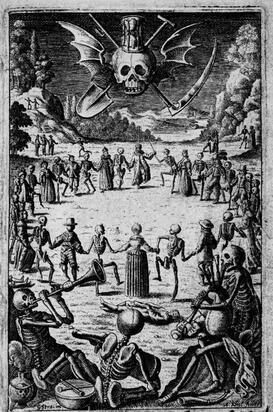
OCCULT- Supernatural, mystical, magical practices/phenomena
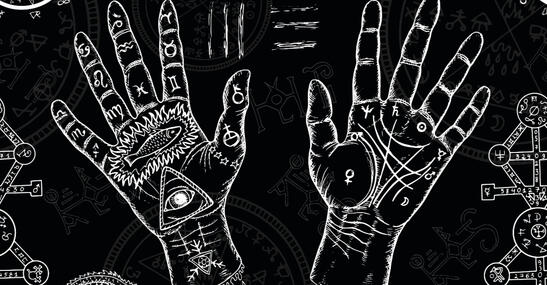
ALTERNATIVE- In this context, following unconventional standards and ways of life.
POSEUR- Someone who pretends to be what they are not; an insincere person; behaves to impress others or fit into a certain group
MALL GOTH- A common type of poseur; can be identified by constantly hanging out outside of Hot Topic, wearing poorly done makeup, wearing shirts of bands they don't listen to, and pointing and laughing at non-gothic stores.

UBER GOTH- Another common type of poseur that can be identified by wearing lots of black, trying hard to be goth, pretending to be deep and sad by writing depressing poetry and listening to stereotypical goth music like Marilyn Manson, who is NOT goth.
BABY BAT- Essentially a baby goth or someone who is fresh into the goth culture and authentically wants to engage in this lifestyle. NOT the same as a poseur.
PAGANISM- Non-Christian, polytheistic religion

WICCA- Modern form of Paganism, witchcraft is often practiced.
History of Goths
Brief history and origins of goths. Includes photos, a timeline, and many notable aspects of the goth subculture.
Influential People
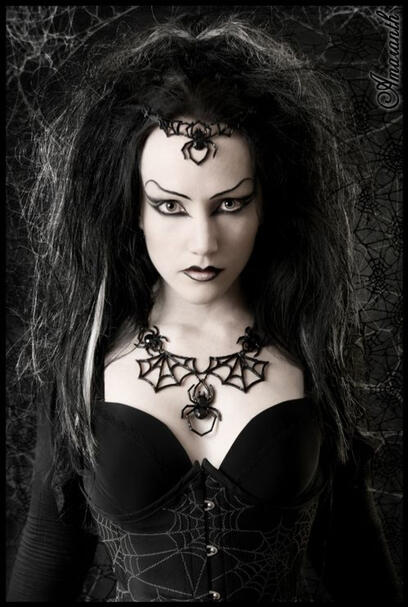
Lady Amaranth gets her name from the flower by the same name. The Amaranth is a mythical flower in Ancient Greece that was believed to have the ability to heal. The flower also held immortal beauty, because it was incapable of wilting. Photos of Lady Amaranth can be found on postcards, book covers, and in many forms of goth media and goth clothing advertisements.

Edgar Allan Poe is a popular figure in literature. His poems, short stories, and language have greatly influenced writing since his time. His writings had themes of loss, sadness, passion, and horror. Poe had a hard life from childhood and is also known for the controversy of marrying his 12 year old cousin when he was 27 years old.

Tim Burton is mostly known for his iconic films such as The Nightmare Before Christmas, Corpse Bride, Frankenweenie, Sweeney Todd: The Demon Barber of Fleet Street, and so on... Not only is he a film maker, but he is also a visual artist and his art is known for being macabre and slightly discomforting with a creepy theme.
Major Events
1956:
"I Put a Spell on You" by Jalacy "Screamin' Jay" Hawkins comes out and serves as the beginning of modern goth music and style.
1967:
"The Doors", an American band, are among the first to be described as "gothic" rock.
1979:
Bela Lugosi's Dead by Bauhaus comes out and helps build into the hype of the gothic rock genre. This song is played at the beginning of the movie, "The Hunger", which is mentioned later on in this page.
1982:
"The Batcave", an infamous unofficial goth nightclub opens in London and becomes a gathering place for goths to meet each other and begin forming a larger community.
An American magazine called "Propaganda" that served as a gothic subculture based magazine comes out.
Gender, Identity, Sexuality
Caution: NSFW
Goths tend to take the aspect of gender and twist it into what they want it to mean. Gender is irrelevant in the goth community allowing people to express themselves with fluidity. Men can wear corsets and heels and women can be as masculine as they like. In the goth community, every gender is seen as the same no matter what characteristics are mixed and matched. The intermingling of gender and gender expression also reduces the amount of discrimination or judgement in the community that would typically be seen in 'normal' society. Within the goth subculture, the people try to combat the narrow stereotypes and expectations of gender roles and gender expectations. In the same sense that the goth community destroys gender, it is also a safe place to embrace it. Many goth women use the community as a safe space to express their femininity and show off their bodies without feeling judged.
The goth community also has a reputation for expanding sexuality in comparison to the average experience in sexuality and relationships. Same-sex relationships, open relationships, fetishes, and sexual liberation are accepted and encouraged in the goth subculture, whereas it is looked down upon or taboo in regular society or by the average person. Another reason the goth community is very open sexually is because of how women are sexualized from a young age. The goth community being open about sexuality helps give women a place to reclaim their sexuality and not be called a 'slut' or 'too loose'. In a normal club, if a woman were to dance suggestively while wearing revealing clothes, many would see that as an invitation to touch her or harass her because she was 'asking for it'. But, in a goth club, if a girl danced the same way wearing even less clothing, she is still seen as a human being who needs to give consent before being touched. The goth community is a much safer, sex-positive, reassuring place.
Even though the goth community is diverse, it can be very demographically limited. Majority of goths are white, middle class, youth/young adults, have a college education, and are unmarried without children. It is harder to find goths who are lower class, people of color, older, or married with children. The goth community can be seen as childish or a 'phase' you might grow out of.
Movies/Shows
A lot of the goth subculture originated in movies, shows, films, etc. Listed are a few of the major arts that contributed to the goth subculture.
The Hunger (1983) $2.99 on YouTube, Amazon Prime
Beetlejuice (1988) Free on Peacock, $3.99 on YouTube, Amazon Prime
Batman (1989) HBO Max, $2.99 on iTunes, $3.99 on YouTube, Amazon Prime
Edward Scissorhands (1990) Hulu, Starz, Sling, $3.99 on YouTube
The Nightmare Before Christmas (1993) Disney+, $2.99 on iTunes, Amazon Prime
Corpse Bride (2005) $3.99 on YouTube, iTunes, Amazon Prime
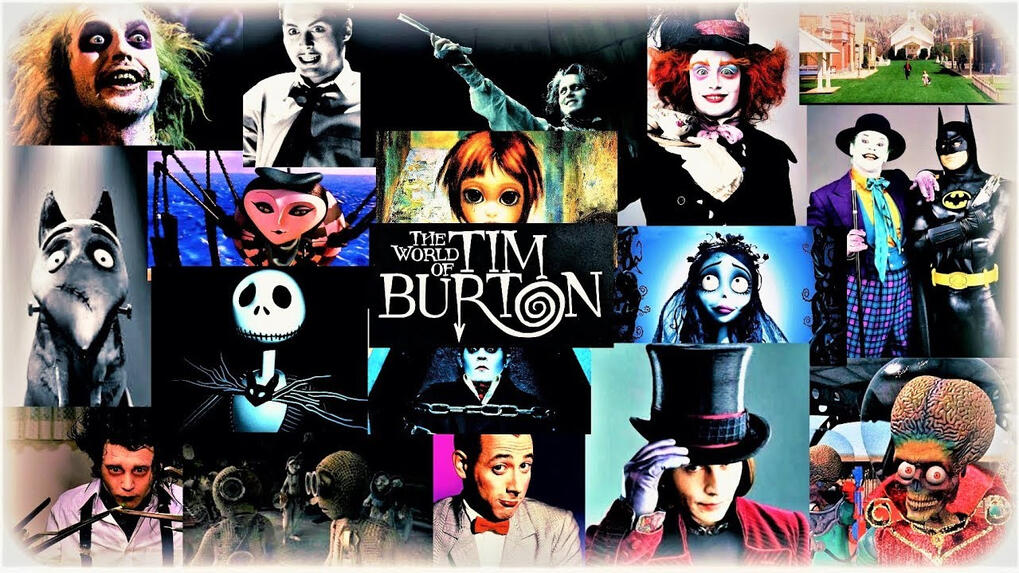
Literature
The goth community is also greatly influenced by many different works of fiction. Below are listed some of the books and authors that have had a major impact on the goth discourse community and subculture. These stories usually contain images relating to occult, supernatural themes, and macabre genre.
The Legend of Sleepy Hollow by Washington Irving (1820)
Frankenstein by Mary Shelley (1818)
Edgar Allan Poe (1809-1849)
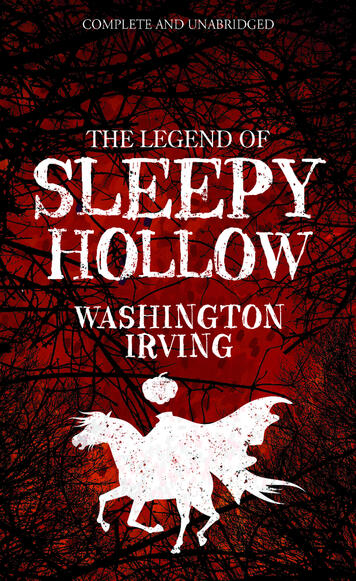

Join the Goths
Social Values
My discourse community is cool for the public to engage in because it allows them to stand out from the crowd. Not everyone is goth or can be goth. Not everyone wants to be goth and nothing can change that, but our community is definitely open to accepting people who want to learn more about the goth lifestyle and influences. The goth discourse community is important because it highlights that everyone is different and unique in their own way. The goth community also shows people that being different or out of the ordinary isn't necessarily a bad thing. The types of people who make the goth community thrive are musicians who embrace the goth culture and make music that goth people enjoy, social media influencers who wear goth fashion, shop at gothic stores, and promote gothic attire, and every baby bat goth learning who they are and finding themselves. The goth discourse community is validated by the public as a community full of outcasts, rejects, alternatives, and anyone who doesn't fit in with society's standards. The goth community is also treated negatively by society because of the fact that it differentiates from the norm and members within it also may argue about who might be "goth enough" or not. Different identities are formed and represented in the goth discourse community by members forming their own circles like goth punk, emo goth, cyber goth, pastel goth, etc. Goth punk is a goth subculture that focuses primarily on the political and musical side of the goth community. Emo goth focuses more on the emotional aspects and mental health pieces of the individuals within the goth community. Cyber goth focuses on music like electronic dance music (EDM) and raves, which are big parties that cyber goths love to attend. Pastel goths are super different from the idea most people think of when they hear the word 'goth'. Pastel goths still have the edgy alternative style that the average goth has but pastel goths wear light soft pinks, key word 'pastel', and soft blues, and light colors and look almost doll-like in their fashion. Other than fashion sense, pastel goths would have the same interests of the other goth subculture identities. All identities are allowed in the goth community. One of the main points and staples of the goth community is rebelling against the norm. Anyone of any gender, race, or background is welcome in the goth community. The identities of minorities are very valued in the goth community even though they don't get enough representation in comparison to white/pale/white passing individuals in the goth discourse community. The goth community has shaped my identity in so many ways, from the music I listen to, the clothes I wear, what movies I like (horror movies, of course) and I'm not sure what I'd do or who I'd be without the goth discourse community. Me being apart of this community means a lot because I'm a minority and can make other minorities feel accepted into the goth community because they'll see me and see themselves in me.
Pros
You get to wear cute clothes
Strong sense of community
You get to be dark and mysterious
Nice makeup skills
Blend in at night
Great taste in music
Cons
Society may see you negatively
Wearing black gets super warm in the heat
People may be scared of or intimidated by you
Blend in at night
Being forced to wear colors
Tips
Find goth friends on social media or in person
Listen to gothic music and learn about the different gothic subgenres
Invest in some new clothes like corsets and shoes like Doc Martens
Give yourself a new edgy hairstyle using some hair dye and a pair of scissors
Piercings and tattoos also help you look the part, so be sure to embrace the alternative style
Save money by going thrifting and making DIY gothic clothing
Resources and further Research
Mental Health
Self Harm in the Goth Community
-trigger warning-
Many people who are attracted to joining the goth community oftentimes face mental illness like depression or anxiety. Though this doesn't apply to all goths, you should still worry about the mental health of the people around you who may be apart of the goth community or considering joining. If you suffer from mental illness, also be sure to take care of yourself and make sure you receive the help you need. A way to tell if someone may be struggling with mental illness could be to look for any signs of self harm or self isolation.
SELF HARMING- Deliberate injury to oneself, such as cutting, scratching, or burning.
Many goths use self harm as a coping mechanism to deal with distress. This behavior is not exclusive to the goth community, but often times plays a big role.
National Suicide Prevention Hotline - 1-800-273-8255
Useful Links
- How to be Goth
- "So Full of Myself as a Chick": Goth Women, Sexual Independence, and Gender Egalitarianism
- Self Harm in Goth Youth
- The Gothic Scholars, Studies and Gothic Subcultures
- Goth: Undead Subculture
- Goth, Identity, Style and Subculture
- Goth Subculture Wiki
- Gothic Festivals
- New Goth City - ABQ
- Goth at 40
- Goths Don't Die
Stories of Today
Goths in Albuquerque/Santa Fe/NM
I'm fairly new to the Albuquerque area and wasn't aware of the somewhat large goth population here. I know that tattoos and piercings are very popular here so I'm not too surprised by goths migrating here. One of the first sources I found about goths in Albuquerque is a site called "NEW GOTH CITY" and had info about social media pages to connect goths in the same area, show goth sites around New Mexico, and also draw attention to goth stores or events happening around the state. The website doesn't have any in person events on it right now due to the pandemic, but I'm sure in the future the events will be booming.
As of now, many of the goth community is online based:
Northern New Mexico Goth & Industrial (Facebook, in person pre-/post-COVID)
Santa Fe Punk (Facebook)
Alchemy Goth Club (Facebook, in person pre-/post-COVID)
Annual Gothic Winter Ball (February, TBD)
Goths in the United States
Even though the goth subculture began in Europe, it has spread to the US (as well as other places, but we'll get to that later). Bigger cities in the U.S. such as Austin, Tampa, New Orleans, and San Francisco have higher concentrations of the goth community living there. Here, in the U.S., the goth community is mostly seen as an extension of the punk rock community or punk movements of the 70s. The other stereotype of goths in the United States is that it is a bunch of depressed teenagers wearing black and obsessing with vampires. Goths aren't always like that, and rarely are. In the U.S. today, goths are mostly a symbol that people are different, live different lifestyles, and aren't afraid to be themselves.
Another common assumption that is made about American goths is that they like the Twilight series and Hot Topic. The only reason Hot Topic is a staple in American goth culture is because it's the only 'normal' (or close to it) store that caters to the goth and alternative community. Hot Topic has changed over the years and moved towards more mainstream products (R.I.P.), but has still maintained its reputation.
Goths may also be perceived as violent in the United States because of the amount of school shooters who would fit the goth stereotype of being an outcast that dresses in all black. Often times, American goths have to debunk this stereotype by showing that under the deep, dark hues, there's a kind soul ready to welcome new people into the goth community.

Goths Go Global
Below is a list of events that take place worldwide that goths participate in to get to know each other more, meet likeminded people, and enjoy their favorite activities.
The Moscow Tattoo Convention - Russia
Festival Del Diablo - Colombia
Rock and Shout Festival - Colombia
Dark Storm Festival - Germany
Alt-Fest - England
+ MANY more! Check the "Gothic Festivals" Link on the resource page!

